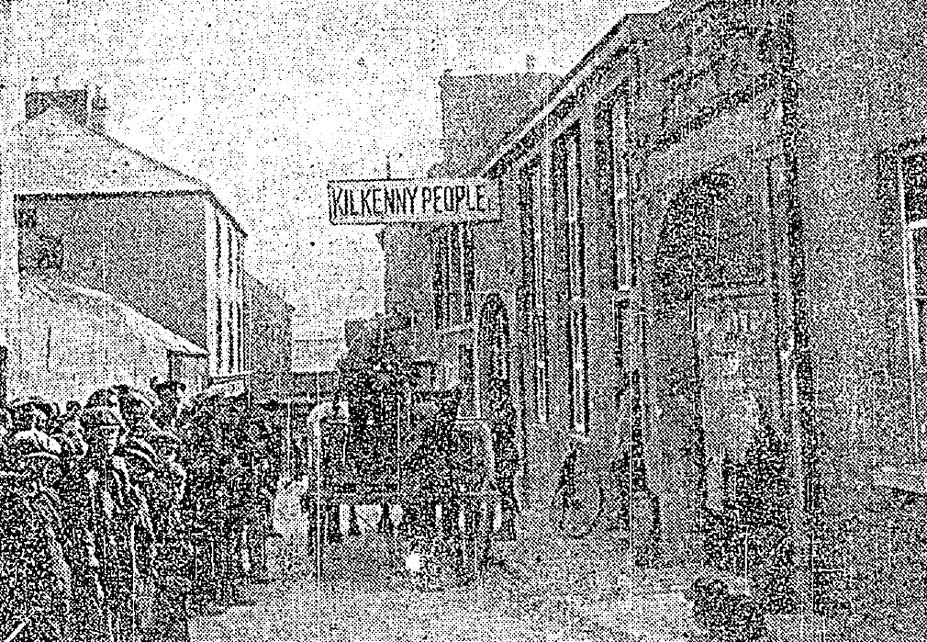Kilkenny People editor and GAA president imprisoned
Cork, 9 October 1919 - Yesterday, a district court martial at Cork barracks assembled to hear evidence at the trial of three men: James Nowlan, President of the GAA; Edward Keane, editor of the Kilkenny People; and Joseph Martin.
The first case heard was that of Edward Keane, whose newspaper has been suppressed twice in the last two years. He was accused of having two revolvers and 25 rounds of ammunition in his house. He pleaded not guilty, describing the charge as ‘absurd’. One of the guns is, he believes, ‘obsolete, or, at most, no more than a toy’, the possession of which he claimed had been satisfactorily explained – it had been given to him by an ex-Head Constable Frizelle following a case he covered as a journalist, more than a decade earlier. He added that he had completely forgotten about the existence of both weapons.
‘There is no man in Kilkenny who, by virtue of his occupation and daily habits, is more under police observation than I...I look upon these as wanton proceedings and evidence of an entire lack of brain on the part of the people who are supposed to run this country, but do not know how.’

The offices of Edward Keane's newspaper the Kilkenny People being raided by the military earlier this year. Vital machinery was removed and the paper was suppressed (Image: Irish Independent, 14 August 1919)
GAA President James Nowlan was charged with having a revolver and seven cartridges in his home. Nowlan’s representative said that the weapon was used mainly for protection; as president of the GAA, Nowlan took receipts from a large number of hurling and football matches, and therefore would often have a lot of money on his person when the banks were closed. He claimed that the revolver was too small to harm anyone and was mainly to alarm any would-be assailants. He added that that he had a license, issued by a former resident magistrate.
Both men were sentenced to 28 days’ imprisonment without hard labour.
The third man, Joseph Martin, who refused to recognise the court, was sentenced to five months with hard labour for being in possession of a copy of a republican newspaper which contained the following extract: ‘Since the Irish Volunteers established the Irish Republic in Easter Week 1916, they have always recognised that an open state of war exists between them and the army of England.’
[Editor's note: This is an article from Century Ireland, a fortnightly online newspaper, written from the perspective of a journalist 100 years ago, based on news reports of the time.]





















